Sustainability in Bordeaux is no longer news, with over 75% of properties under sustainable certification it’s the largest vineyard area engaged in environmentally responsible practices. Included within this is a deeper connection to the place, local produce and local producers and an opportunity to reconnect with local food traditions.
Farm to table
The name Medoc comes from media aqua between two waters, waters that give the region a rich diversity of delicious options to share from the fresh (or briny) waters of the estuary and the ocean as well as the land. Fish, oysters, Pauillac lamb, game, mushrooms……
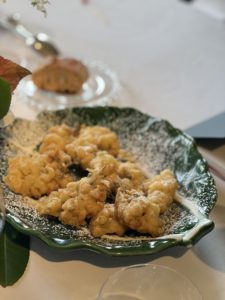
Jean-Luc Beaufils, Chef at Château Phelan Ségur in Saint Estèphe, shares this abundance with cooking classes in the newly renovated kitchens of the chateau as well as the dining room.
He has published a beautifully illustrated collection of traditional recipes using these local ingredients, matching the wines of the property with his locavore terroir based cuisine including fruit, vegetables and honey from the chateau.
When I was there this Spring he presented us with rare and local seasonal specialty of acacia flower fritters.
Livestock in the vineyard
Further south, Château Giscours (2024 Best Of Wine Tourism Global Winner) is surrounded by a beautiful park, and woodland as well as vines. Perfect for foraging for the famous Cêpe mushrooms. Rare breed cattle and sheep graze in pastures with sheep keeping weeds at bay in the vines in winter and poultry eating the bugs.
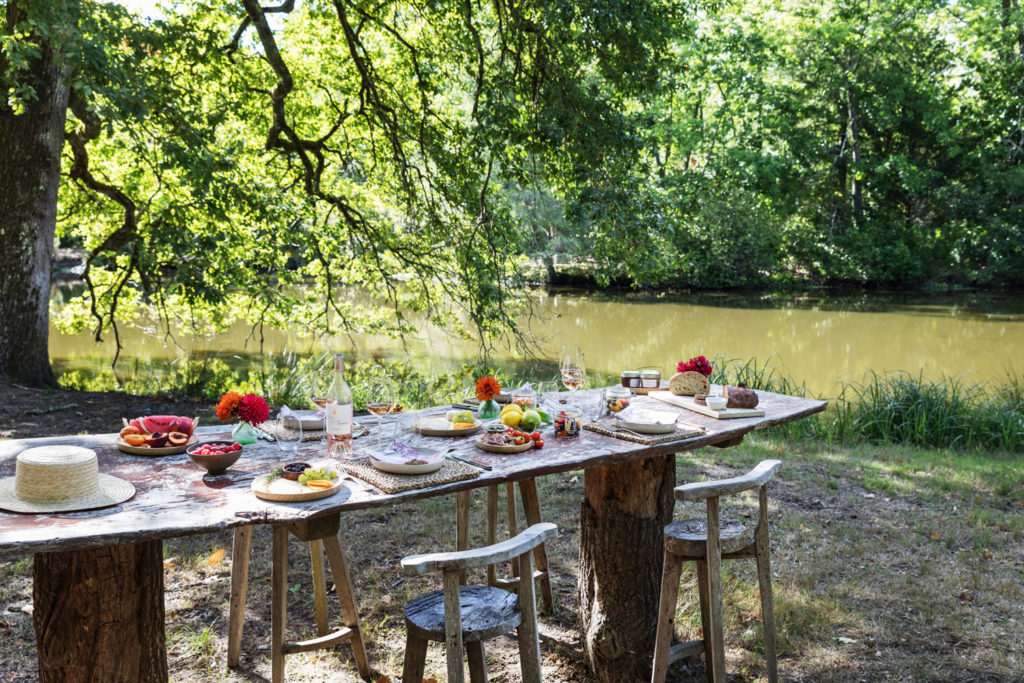
Here, staff and guests enjoy the abundance of the kitchen gardens managed by gardener Ahmed Jaayjaa and Chef Benjamin Laurent who serves farm to table dining with bread leavened with yeast from the wine cellar.
Sharing biodiversity
Further south, another biodynamic pioneer, Château Guiraud has introduced biodiversity with cover crops and hedgerows its vine collection and, more surprisingly, tomatoes. The Biodiversity garden in front of the chateau contains over 500 varieties of tomatoes, grown in partnership with the association Jardins de Tomates. It’s an outdoor classroom for biodiversity, illustrating massal selection and natural pest control. The tomato harvest is collected by the team to add to the seed bank, and used in the two restaurants, La Chappelle on site and Le Cercle Guiraud in the village of Sauternes where Chef Yoann Amado champions local food.
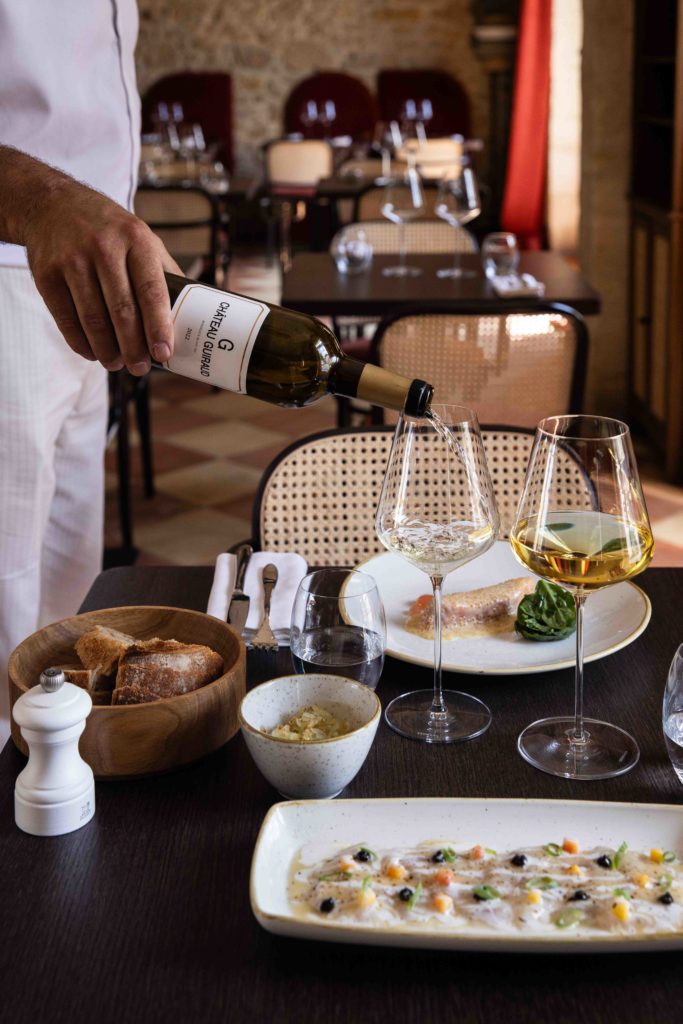
The chateau is the perfect partner to help raise the profile of these ancient varieties, they welcome over 10 000 visitors a year and won them the Global Best Of Wine Tourism Award in 2022.
Chateau Troplong Mondot in Saint Emilion, is a member of international wineries for climate action. Their sustainable philosophy stretches to their Michelin star restaurant Les Belles Perdrix. Chef David Charrier uses produce from the chateau’s permaculture vegetable garden as well as working alongside local producers.
Chateau Angelus also shares local food and cuisine through their restaurants. Between Le Logis de La Cadene in Saint Emilion, Le Gabriel and Le 1544 in Bordeaux they serve 240 covers day! Two years ago, they ripped up vines on the flat land near the Dordogne River to create their own farm. Perfectly placed, half way between Saint Emilion and Bordeaux La Ferme 1544 grows, fruit, vegetables and herbs, including 11 different species of tomato, alongside free range pigs and chickens. They work hand in hand with the chefs to get the ultra-fresh seasonal produce on the table the day it is picked. Over production is sold to staff and locals. They have also revived traditional mushroom cultivation in the ancient limestone caves under the vines just above the chateau, where Etienne Pillard grows up to 100ks of 5 to 8 difference species of mushroom per week in recycled wheat bran and sawdust. nothing goes to waste!
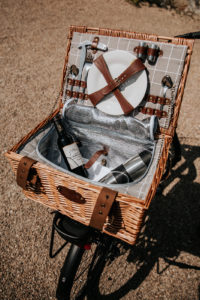
In nearby Lussac Saint Emilion, you can go and meet local food producers for yourself, thanks to the ‘bicy’clotte tour ‘at Château La Grande Clotte (2022 Regional Best Of Wine Tourism).
Originally from Cognac, husband and wife team Julie and Mathieu, brought their wine making skills honed around the world back to this beautiful corner of Bordeaux in 2016. The organic certified, single 9 ha plot of vines, including 1 ha of rare white grapes, are surrounded by woods.
Guests discover local producers for themselves cycling through the hills and valleys surrounding the chateau on electric bikes, with picnic baskets that slowly fill with local cheeses, cold cuts, chocolates, macarons. Then it’s off to a shady picnic spot to enjoy with bottles of delicious wines from the property.
The large wine region of the Entre deux Mers has a lot of mixed agriculture alongside the vineyards. What better way to discover this delicious diversity than a cooking class?
At Chateau Roquefort (2022 Regional Best Of Winner), local chef Olivier Straelhi shares how to prepare local and season produce before tasting the fruits of your labors in the Orangery. In season he’ll prepare a special truffle menu, or you can try the local caviar perfectly paired with their white wine. If it all sounds a bit exhausting, they have a beautiful guest room then you can taste more specialties for breakfast!
At nearby Château Du Payre (2023 Regional Best Of Winner), guests are invited to join the 5th generation of Marcuzzi family wine makers for lunch at their ‘table d’hôtes’ enjoying fresh fruit and vegetables directly from their organic kitchen garden. You couldn’t get the table closer to the farm!
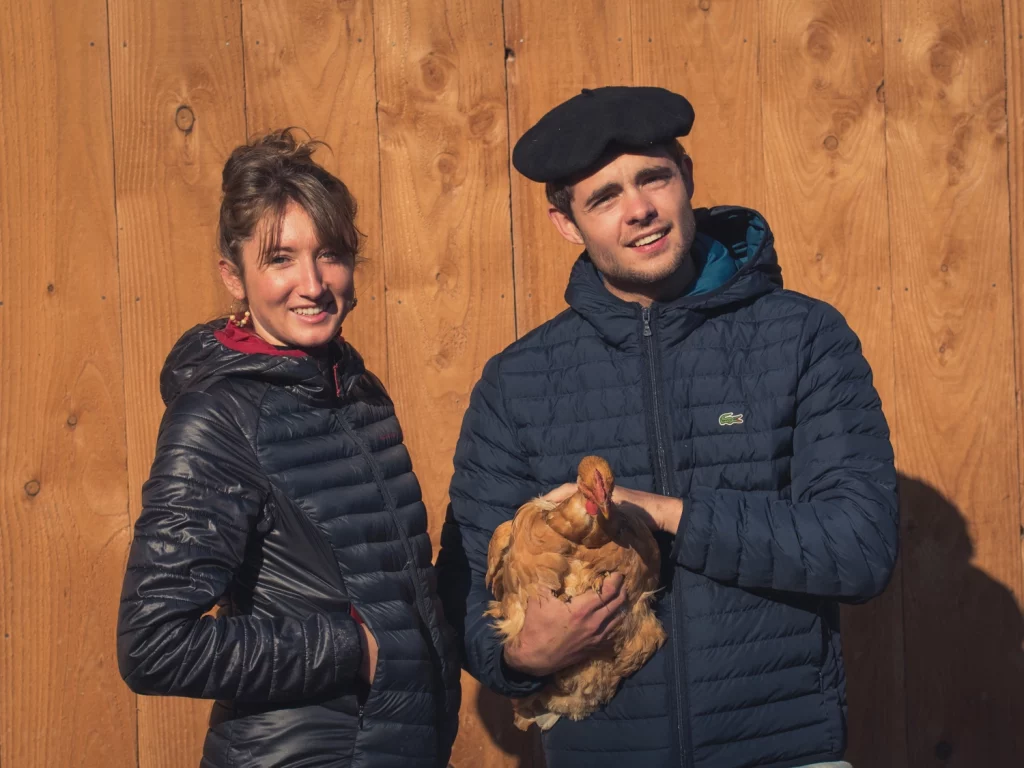
Tucked away in the grounds of Château Camarsac in Entre deux Mers, La Bonne Table restaurant is a direct link between the Elevage de Barthes and restaurant guests. Sacha Lacour Arjeu’s 7 ha farm, where he raises free-range poultry and pigs, is a stone’s throw from the chateau. At La Bonne Table they prepare simple, traditional dishes, with care from their own production and from other local producers in a relaxed and bucolic atmosphere.
Long term and local
All these initiatives are part of an in depth and long term philosophy, working to protect the environment whilst sharing its abundance with guests, staff and the local community in the most delicious way.
Author : Wendy Narby - Insider Tasting Photos credits : ©Château Phelan Segur X Wendy Narby / ©Château Giscours / ©Château Guiraud / ©Château la Grande Clotte / ©La Bonne Table